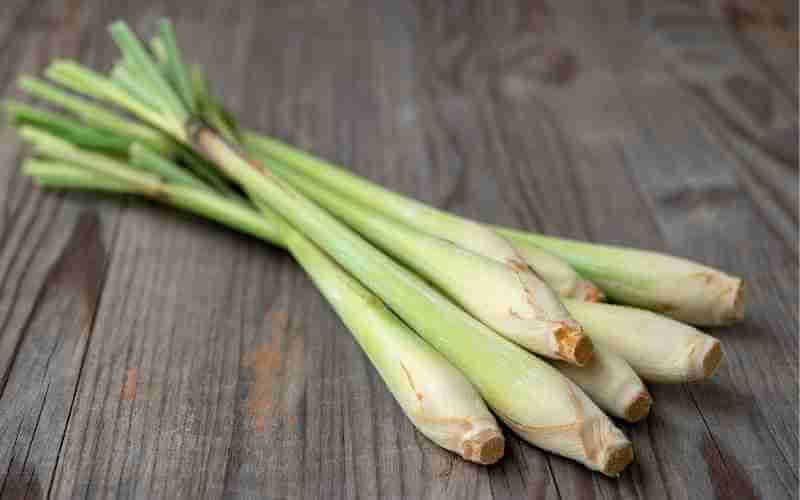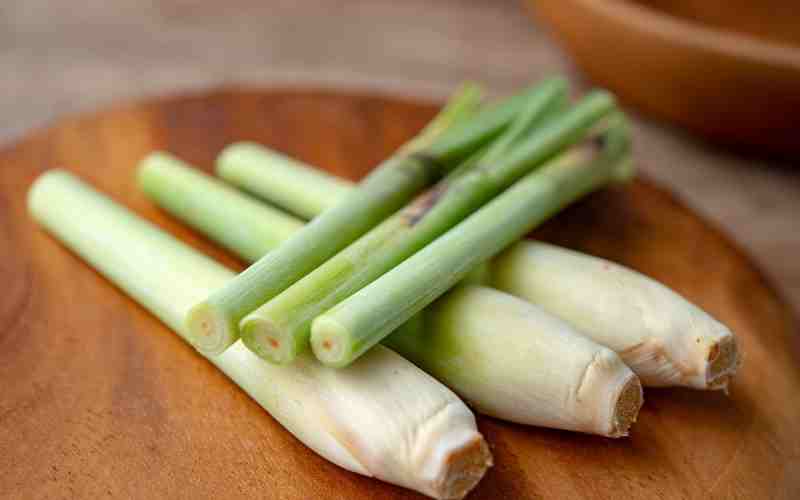Lemongrass has been described as having a flavor that is sweet, leafy, and nutty. Adding a dash of nuttiness to teas, spice blends, and other dishes brings out the best in the dish.
This herb has a lemony aroma and possesses the same oils as the lemon fruit. Yep, The same sweet aroma of lemon fruit you love to sniff endlessly can be found in lemongrass.
So you wonder, does lemongrass taste like lemon? Lemongrass tastes a little different from a lemon. It has that fresh lemon flavor that is a little bit watery, without the acidity of the citric acid found in lemon.
Let’s go further
Contents
What You Need To Know About Lemongrass

Lemongrass is a perennial grass with a lemon scent, that grows in a tropical climate, most notably in Southeast Asia and Africa.
This plant has a distinct citrus note paired with a herbal, which makes it a common ingredient in Thai, Indian, Indonesian, Vietnamese, Sri Lanka, and other tropical regions. It can be found in fresh, dried, or powder form.
The most aromatic part of the Lemongrass plant is the pale yellow stalk, which is closest to the center of the plant. It is the one with the most flavor part, the more you cook it, the more intense the flavor becomes.
Lemongrass can be eaten raw after the outer leaves have been removed. However, chewing down and ingesting the inner stalk can be a bit of a challenge.
The bottom portion of the stalk is highly recommended because it is both fleshy and rubbery. Only the top of the stalk, which is stringy, should be consumed if you want to eat the entire stalk at once.
You should avoid using the bulbous end of the vegetable in any recipes because it is not edible.
Read: What does flounder taste like? (5 Different Tastes)
Does Lemongrass Taste Like Lemon?
Lemongrass is commonly thought to taste like lemons, which is a common misunderstanding. On the other hand, Lemongrass has a distinctive flavor on its own. It has a citrusy flavor paired with a slightly earthly note, which is similar to the flavor of both lemon and mint.
The most noticeable difference between lemons and lemongrass is that lemongrass does not taste sour.
In addition, only the white part of the plant has the flavor described as lemony with undertones of ginger and mint.
Lemongrass adds a citrus undertone to a dish without overpowering the other flavors when used in the right proportions.
No, lemon and lemongrass are not related at all, despite having similar flavors. Lemongrass is a perennial grass with a lemon scent while lemon is a tree fruit.
However, in terms of flavor, lemongrass has mild and doesn’t compete with other ingredients in a dish. Because it does not contain any lemon juice, it has a slightly sharp and tangy flavor.
Lemongrass adds a delicate lemon flavor and a sweet aroma to food when it is cooked.
Read: What To Serve With Vegetable Soup (9 Delicious Sides Dishes)
Frequently Asked Questions
Lemongrass can be paired with what other foods?
Lemongrass is a nice complement to shrimp and chicken, you can also make a delicious Thai salad with plants. Toss some lemongrass into a pot of tea or a stir-fry, or add it to a variety of soups, vegetables, barbecue, or other dishes.
Is it safe to eat raw lemongrass?
Lemongrass can be eaten entirety, including the leaves. On the other hand, the stalk can be challenging to eat. In light of this, the stalk of raw lemongrass must be removed before consumption.
What is the flavor of lemongrass?
Lemongrass has a citrusy, lemony flavor with a hint of mint, which should come as no surprise. Its flavor is subdued to keep it from overpowering the flavors of other ingredients.
Lemongrass is an excellent addition to teas and dipping sauces because of its calming aroma. Asian or Indian countries provide the vast majority of the world’s lemongrass supply.
Read: What vegetables or fruits have similar qualities to tomatoes?
Conclusion
Lemongrass has a distinctively fragrant flavor thanks to the white parts of the plant. Before it can be used in a recipe, the lumpy ends must be removed. As a bonus, it’s a common ingredient in Thai cuisine.
I hope you enjoyed this wonderful short article, so when next someone asks, “does lemongrass taste like lemon?” you will be able to answer.
